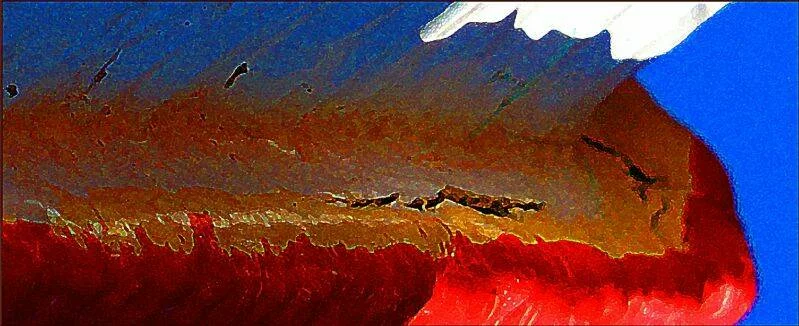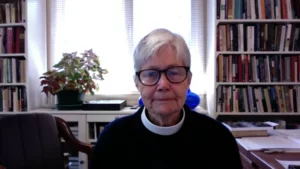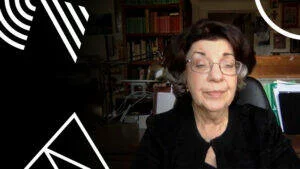N.B.: As a reminder, I will be using W.S. Merwin’s translation of Purgatorio.
Dante stands now at the foot of Mount Purgatory, about to begin an ascent of purification. As a Protestant standing beside him, there is a part of me that wants to say, “Um, you know you don’t actually have to do this, right? Christ cleans you, not a spiritual hiking trip.”
That part of me needs to shut up, for a couple reasons. Not only is the whole Commedia offered as poetry, not Scripture, but I as a reader am a guest in another person’s perspective. The only way to learn from literature or other people is to pay close attention, ask questions, and try to understand. To do less is to betray a presumption that the other has nothing to teach you, and wasn’t such the attitude of too many Pharisees and Zealots?
Whatever your thoughts on the doctrine of Purgatory (and the Catholic argument for it is pretty fascinating), it has powerful metaphorical merits, which is all we require of it in the Commedia. We have seen how sin destroys the soul, often in such a way that the punishments of Hell only reflect those souls’ previously lived reality. This was the diagnostic part of the Dante’s journey to God.
Presuming we accept the diagnosis (and the prognosis is death [Romans 3]), now we want to know the prescription or treatment, which is purification. The souls climbing the mountain must be stripped of the vices that separate them from God. They thus differ from the souls in Hell in that they desire God, they sought him in life and, presumably, accept the task given them as more than tolerable for the sake of what they will win in the end.
Canto I: A New Beginning
The first canto of Purgatorio has a quiet tone that permits some rest after Inferno. Dante has a moment to look around, enjoy the stars and to notice four unique, symbolic, and spiritual stars not visible to the living. And dawn begins to break, truly signaling a beginning.
Dante explicitly invokes Calliope, the muse of epic poetry, though as we learned at the outset of this project, epic is only one modality of a larger, comic poem written in a local tongue about the same subject that other vernacular poems are written: Love. But this is a journey or quest from darkness to this transcendent, divine love.
Merwin points out in his notes that in canto II Virgil first refers to himself and Dante as pilgrims because technically no one makes a pilgrimage through Hell; pilgrimage implies the hope of arriving at some place of spiritual edification. Indeed, Dante tells his friend in canto II that his soul is weary from the journey through Inferno, as well might he be. But this travel reference, together with the opening metaphor of the sailing ship, emphasize that Purgatory is properly a place of journey, and epic is a suitable mode for describing a journey.
Dante also begins to load the opening cantos with symbolic imagery of both love and judgment. The “miserable magpies” of lines 11-12 refer to princesses who challenged the Muses, lost, and were punished for their hubris. Then the pilgrim sees Venus, “The beautiful planet that to love inclines us,” in the sky, suggesting the orientation of the whole Commedia upward toward heavenly love.
We are between the two poles of Hell and Heaven. Everything for Dante, even Hell, is ordered or established by divine Love (and justice). Judgment more than love obviously typifies Hell, while Love more than judgment typifies Heaven. Purgatory, then stands between as a mixture of the two, judgment demanding purification but Love calling the souls toward it.
The Charon of Purgatory
I thought it strange, at first, that Cato should appear at the mountain’s base as the Charon figure, i.e., the one who guides Dante and Virgil onto the path through this part of the afterlife. Cato, famously, killed himself rather than accept the autocratic rule of Caesar. Even if you grant that he was standing up for good principles, you would expect to see him in Limbo—with Cicero, for instance. He is also a suicide, so you might expect him to be within the suicide grove in Hell. Our key insight to how he wound up patrolling Purgatory comes in line 71. Virgil explains to Cato that Dante’s goal in coming to the mountain “is liberty, and one who has / forfeited life for that knows how dear it is.” Cato’s motivation, apparently, was not sinful, though his action was, and thus he was spared the torments of Inferno. This also establishes a major theme of Purgatorio as liberty, namely, the freeing of the soul from the burden of sin.
As a sidebar, it is interesting to think about the fact that Brutus and Cassius were the other two betrayers stuffed in the mouths of Satan at the lowest depth of Hell. Dante knew personally the abuses of power, having been exiled from his native Florence by the machinations of local politicians and the pope himself. Is this a contradiction or inconsistency? Caesar’s dictatorial ambitions were an acceptable reason for Cato to kill himself, but betraying Caesar by assassinating him is worse. It is one thing, I guess, to stand publicly with Cicero and Pompey against Caesar and lose and another to feign loyalty only at last to conspire against him.
To move Cato to let them pass, Virgil appeals to Cato’s love for his wife, Marcia, in addition to their having been sent by Beatrice, and Cato’s response, while seemingly cold, hints at just what purification and liberation may look like:
Now that she abides beyond the evil riverShe can move me no longer, by that lawThat was made when I came from over there. (88-90)
The beatified Beatrice’s intervention impresses Cato more than mention of his own wife. I think Dante wants this to jar us and take us aback a moment. Cato has not forgotten her nor what she meant to him, but Cato’s priorities have been dramatically reordered such that she does not hold the same privileged place for him as she once did. Perhaps it would be selfish of him to act on personal preference, though I as the reader would not think it so. Dante the author is challenging our normal ways of thinking, beginning to orient us to the good and true and beautiful. Cato aids them because they have Heaven’s blessing, not for the favor or love of anyone else.








Comments
Be the first one to make a comment!